Cold Sores Vs. Pimples: How They Look, Causes, & Treatment
Determining the root cause can help you choose the appropriate medication.
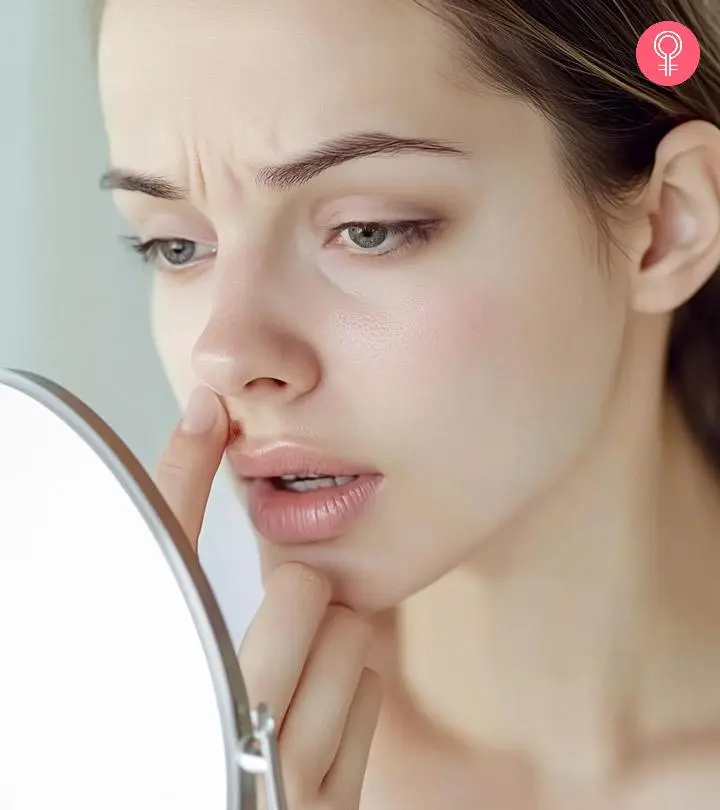
Image: Midjourney/ StyleCraze Design Team
Cold sore vs. pimple – Are they the same? How do you spot the difference? It is easy to mix up a cold sore and a pimple because they both look and feel the same. There is, however, a significant distinction between the two. Knowing the differences between these two common skin problems is necessary for effective treatment and management. In this post, we will discuss the differences between cold sores and pimples and how to recognize them, along with their causes, symptoms, and treatment options. Keep reading to know more!
In This Article
Cold Sores Vs. Pimples – How To Tell The Difference?
| COLD SORE | PIMPLE |
|---|---|
| Tiny bumps clustered together | Appears as a single bump |
| Appears on the corner of the lips and mouth | Appears anywhere around the lips |
| Filled with a clear fluid | Filled with pus |
| Burns, tingles, and itches | Painful to touch |
| Lasts for 2-3 weeks | Large and painful pimples may last for 2-3 weeks while smaller ones last for a few days |
| Contagious | Non-contagious |
| Does not leave any scar or mark | May leave a scar |
To better understand the difference, here’s a picture that compares cold sores and lip pimples. Scroll down.
Key Takeaways
- Cold sores and pimples may look and feel the same, but there is a significant distinction between the two.
- A cold sore is an infection caused by the Herpes Simplex Virus (HSV), whereas a clogged hair follicle causes a pimple.
- Taking medicines and using the right home remedies can speed up the healing process, and you should be able to see results within a week.
What Do Cold Sores And Lip Pimples Look Like (Pictures)?
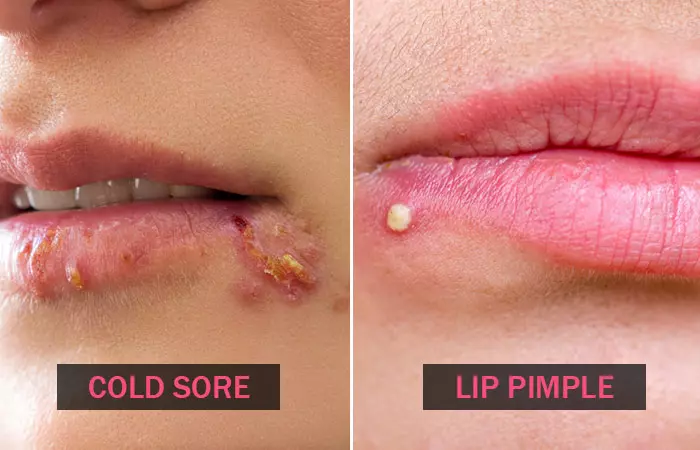
Whether you have cold sores or lip pimples, you can treat and prevent them. But first, you must know the causes and symptoms of cold sores and pimples. The next section discusses the causes, symptoms, and treatment options for cold sores and lip pimples.
What Is A Cold Sore?
A cold sore or fever blister (also known as Orolabial herpes) is an infection caused by the Herpes Simplex Virus (HSV). Herpes on skin is not an uncommon condition. According to the World Health Organization (WHO), about 3.7 billion people under the age of 50 are infected with this virus. Cold sores are caused by the HSV-1 virus, which is contagious (1).
Cold Sore Causes
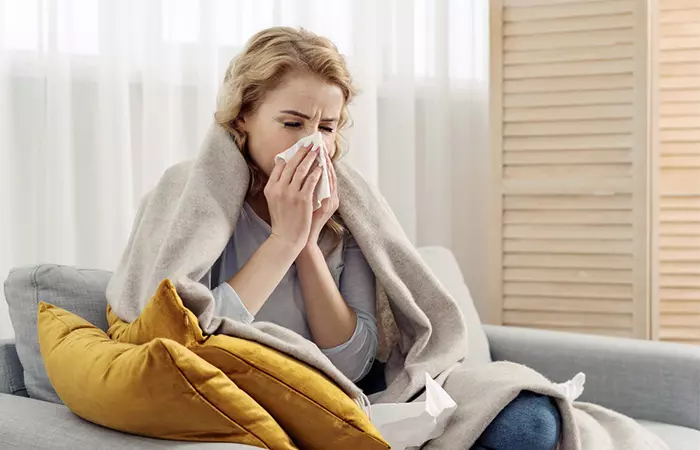
Cold sore is caused by HSV, which easily spreads from person to person through skin contact (1). Here are the causes of cold sores and how it spreads.
- Low immunity
- Poor diet
- Dehydration
- Injury
- Hormonal changes due to menstruation
- Fever
- Stress
- Cold, flu, and similar illnesses
- Kissing a person with cold sores
- Sharing towels
- Sharing eating utensils
- Oral sex
- Sharing drinks (drinking from the same can or bottle or glass)
- Sharing makeup (especially lipstick and other lip products)
How to know if you have cold sore? Check out the following symptoms to compare.
Cold Sore Symptoms
- A tingling sensation in the affected area
- Difficulty opening the mouth, eating, or talking
- The appearance of fluid-filled blisters in the affected region after a few days
- Clear fluid oozing out of blisters that may turn into painful sore(s)
- Fever or flu-like symptoms that show your body is reacting to the virus.
While identifying cold sores is important, learning the ways to prevent them is always better. Read below to learn more about the preventive measures you should follow.
How To Prevent A Cold Sore
- Healthy Lifestyle: Maintain a strong immune system through a balanced diet, regular exercise, and adequate sleep.
- Sun Protection: Use sunscreen on lips and face to reduce the risk of getting cold sores from sun exposure.
- Stress Management: Practice meditation, yoga, or deep breathing exercises to minimize the likelihood of cold sores triggered by stress.
- Hygiene Practices: Avoid sharing personal items like utensils, towels, or lip products to prevent the spread of the herpes simplex virus.
- L-lysine Supplementation: Evidence suggests that the daily intake of L-lysine, an amino acid, can help reduce the frequency of cold sore outbreaks (2).
- Early Treatment: If you notice any tingling or itching sensations around your lips, consult a doctor and apply an OTC antiviral cream to curb the severity of the cold sores.
Read on how to treat cold sores below.
Cold Sore Treatments
The first thing anyonewith cold sores will want to know is how to get rid of cold sores! Though you can’t cure a cold sore, you can treat the lesion. To speed up the healing process, try one of these treatment options:
- Antiviral Medication: Your doctor may prescribe an antiviral medication, cream, or ointment (3). The commonly prescribed pills include Valtrex, Famciclovir, and Acyclovir. The ointments usually prescribed for cold sores include Docosanol, Acyclovir, and Penciclovir (4).
- At-Home Treatment Options: You may try cold compresses, avoid sun exposure, and use OTC creams and medicines. You may also try some alternative remedies such as applying lemon balm on the lesion (5). Licorice also has antiviral properties that help resist the HSV-1 virus (6). Aloe vera is also said to have wound-healing properties that can help reduce inflammation and speed up healing (7).
When it comes to cold sores, prevention is better than cure. So, avoid skin contact with people who have cold sores. Avoid sharing your personal items (such as towels, utensils, glasses, and spoons) and makeup items. Also, to avoid spreading the virus in kids, do not let people with cold sores kiss your baby or kid on the face.
These are the causes, symptoms, and treatment options for cold sores. Let’s now take a detailed look at lip pimple, the ways to identify it, and how you can treat it.
What Is A Lip Pimple?
A lip pimple is caused by a clogged hair follicle
. Pimples or zits can appear on any part of your body where you have hair follicles. You can get a pimple at the edge of your lips – and when it swells, it looks like it is right on your lip! When a hair follicle gets clogged with dirt, sebum, and dead skin cells, the area swells up, turns red, and becomes painful to touch. Unlike a cold sore, a lip pimple is not contagious.
Lip Pimple Causes
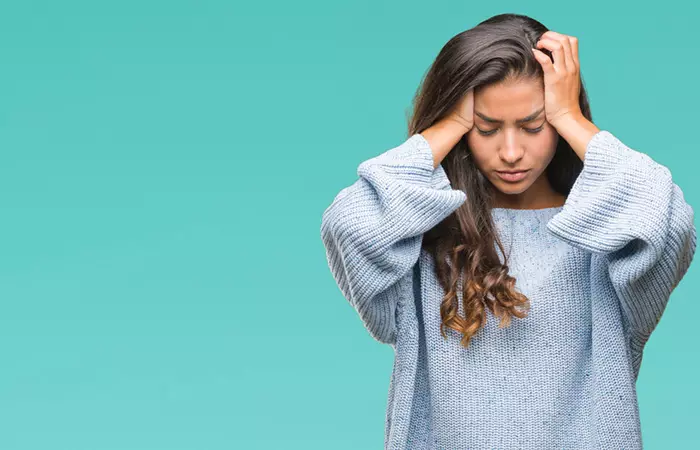
Here are the causes of lip pimple (8):
- Not removing makeup properly
- Hormonal changes (during menstruation or pregnancy)
- Consuming dairy products
- Stress
- Polycystic ovary syndromei A condition characterized by ovaries that create an excess amount of androgens and male hormones, which manifests as cysts. (PCOS)
- Certain medicines, such as steroids
Let’s now check the symptoms of lip pimple.
Lip Pimple Symptoms
- A small reddish bump (which is almost flat) on the area
- The bump turning into a whitehead (with a white pus-filled tip) or a blackhead (a tip with a black dot)
- The pimple growing big and developing more pus, where it becomes tender and painful to touch
In the following section, we have listed a host of ways you can treat a lip pimple effectively.
Lip Pimple Treatments
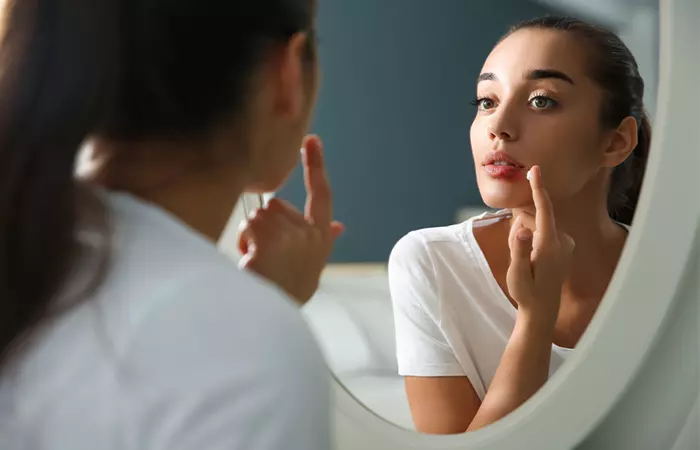
If you want to know how to get rid of pimples on your lips, you are at the right place. The treatment method for a pimple depends on its severity. While mild and moderate pimples can be healed easily, severe cases may require medication. Here are a few things you can try out:
1. OTC Creams, Ointments, And Soaps
You can try OTC creams, ointments, and soaps that are made for treating pimples (9). They are alcohol-free and mild. Use them as suggested by the doctor or the manufacturer.
2. Hot Or Cold Compresses
Applying hot or cold compresses to the pimple helps reduce the inflammation
. These compresses also reduce the pain and redness in the affected area.
3. Turmeric
Turmeric is widely used in ayurvedic treatments for various skin issues.
Its anti-inflammatory properties may help treat pimples (10).
Ms Meehnia, a blogger, detailed her experience of using turmeric for her pimples. She said, “This is not the fastest process to cure pimples I agree but it did not leave any scar/blemish whatsoever. All the ingredients are easily available in your kitchen. And my pimple was gone as if it was NEVER there (i).”
 Quick Tip
Quick Tip4. Benzoyl peroxide
This is a popular medication used for treating acne (11). This ingredient is commonly used in cleansers, gels, creams, and facial wipes. Use any of these products on your pimples.
5. Oral Medication
If the inflammation is moderate to severe, your doctor may also prescribe oral medications, such as antibiotics.
6. Topical Medications
Doctors often prescribe topical medicines for pimples, which usually contain salicylic acid, azelaic acid, or retinoidsi A group of compounds derived from vitamin A that are widely used in cosmetics to address multiple skin issues. (12).
The best way to prevent lip pimple is to keep your face clean. Make sure that you:
- Wash your face at least twice a day and remove makeup thoroughly.
- Avoid touching your face frequently with your hands.
- Use oil-free and non-comedogenici A category of beauty or skin care products that claim not to clog or block skin pores. makeup.
- Clean your makeup brushes and beauty blenders regularly.
 Quick Tip
Quick TipInfographic: Cold Sore Vs. Pimple
You can use makeup products to conceal the cold sores and pimples that pop up on your face. Apply an OTC cream to dry out a cold sore before applying makeup. For pimples, apply any water-based moisturizer to prevent breakouts. Additionally, you can try home remedies such as honey, coconut oil, and licorice root for cold sores, and aloe vera, turmeric, and garlic for pimples. Click on the infographic below to learn more about concealing cold sores and pimples with makeup. Illustration: StyleCraze Design Team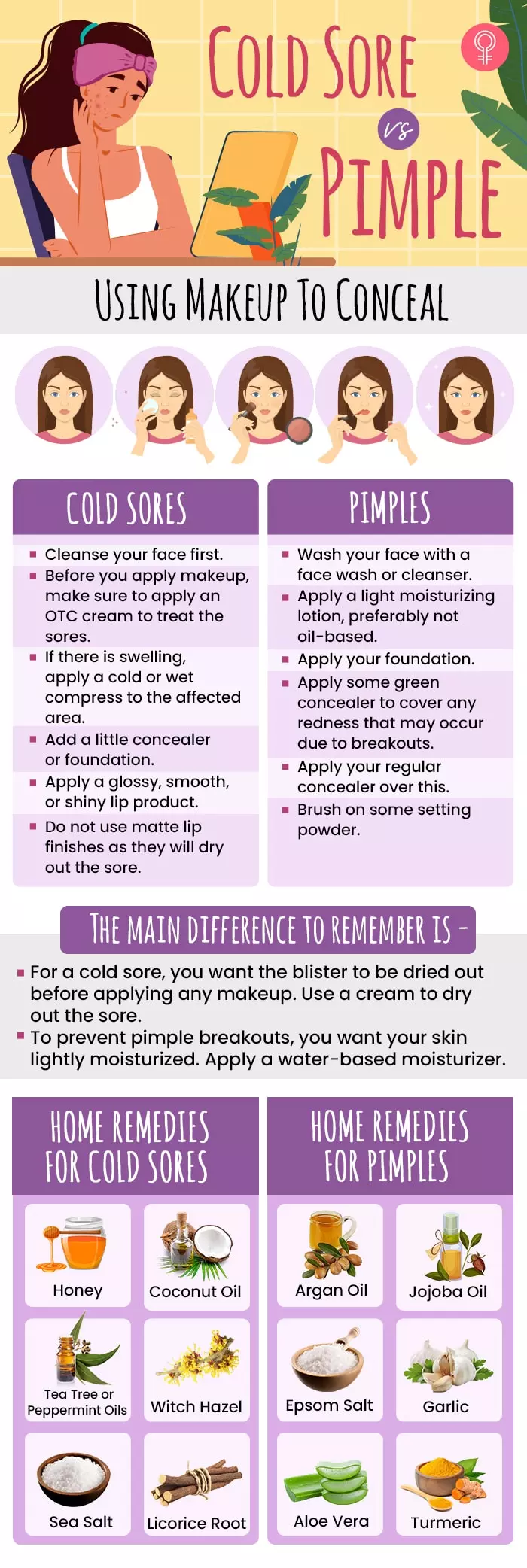
Though they both look the same, a cold sore and a pimple are different. Cold sores are caused by the HSV-I virus, while lip pimples are caused by the reasons that cause acne. Both can be painful, uncomfortable and in some cases, they can lead to skin infection or oral herpes. you may need to take immediate action to improve your immunity to protect your lip and skin. To speed up the healing process, you may take antiviral medicines prescribed by doctors or follow at-home treatment options. Though several home remedies are available, sometimes these require medical attention. So, consult your dermatologist and get it diagnosed to avoid adverse issues.
Frequently Asked Questions
Should I pop a pimple on my lip?
No, popping a pimple on the lip should be avoided since it may get infected or leave a scar.
Can a cold sore have a whitehead?
Pimples and cold sores can develop heads, but they have different appearances. Pimples can generate blackheads or whiteheads depending on whether the follicle remains open or closed. But cold sores frequently form a little quantity of fluid. This fluid is more transparent and thinner in texture than a whitehead, which is usually white to yellow with a heavier liquid inside.
Can you pop a cold sore like a pimple?
No, cold sores should not be popped since it would cause scarring and spread to other areas of your body.
Are there any specific dietary changes that can help prevent cold sores and pimples on the lips?
Yes, increasing your intake of lysine-rich food may help reduce the activity of arginine, which increases the possibility of HSV (Herpes Simplex Virus) replicating (13). Consume lysine-rich foods like cheese, soybean, fish, legumes, and chicken. Avoid eating sugar, pasta, and white bread as they have a high glycemic index, which increases sebum production and may cause pimples on the lips (14).
How can I distinguish between a cold sore and a blister caused by sunburn on the lips?
Cold sores are fluid-filled, red blisters, whereas blisters caused by sunburn on the lips are small and white.
Can certain lip balms or lipsticks trigger cold sores or pimples?
Yes, a cold sore can be triggered when you share your lip balm or lipstick with people who have a cold sore. Some lip balms and lipsticks can clog the pores around the lips, which may lead to lip pimples.
Illustration: Cold Sores Vs. Pimples: How They Look Causes & Treatment
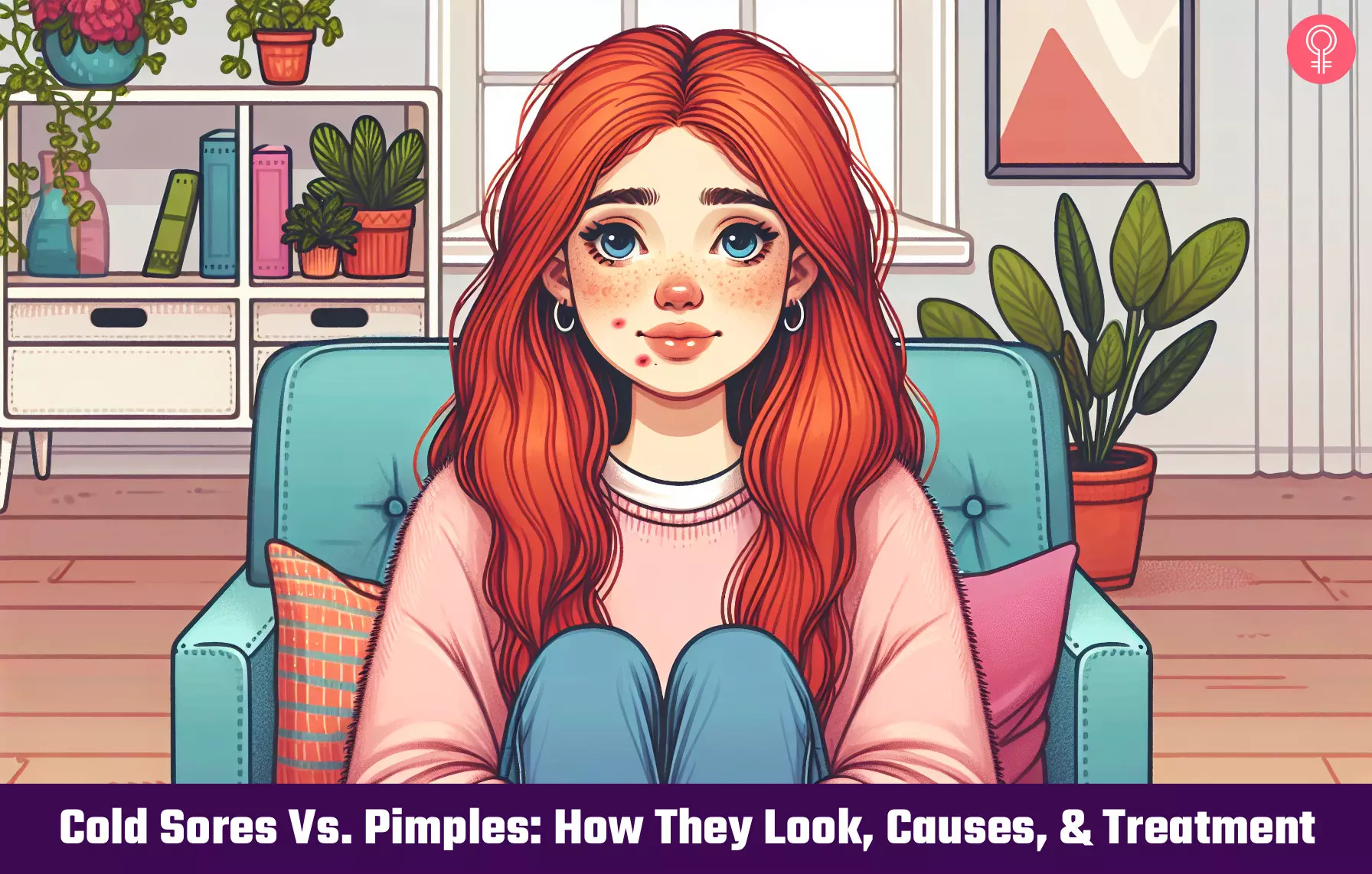
Image: Dall·E/StyleCraze Design Team
Confused about the difference between a cold sore and a pimple? This eye-opening video reveals the distinctive features, causes, and treatments for each so you can conquer those skin woes with confidence. Watch it now!
Personal Experience: Source
StyleCraze's articles are interwoven with authentic personal narratives that provide depth and resonance to our content. Below are the sources of the personal accounts referenced in this article.
i. Simple DIY for curing pimpleshttps://msmeehnia.com/2016/07/25/simple-diy-for-curing-pimples/
References
Articles on StyleCraze are backed by verified information from peer-reviewed and academic research papers, reputed organizations, research institutions, and medical associations to ensure accuracy and relevance. Read our editorial policy to learn more.
- Globally an estimated two-thirds of the population under 50 are infected with herpes simplex virus type 1
https://www.who.int/news/item/28-10-2015-globally-an-estimated-two-thirds-of-the-population-under-50-are-infected-with-herpes-simplex-virus-type-1 - Lysine for herpes simplex prophylaxis: A review of the evidence
https://www.ncbi.nlm.nih.gov/pmc/articles/PMC6419779/ - Treatment and prevention of herpes labialis
https://www.ncbi.nlm.nih.gov/pmc/articles/PMC2602638/ - Comparison of new topical treatments for herpes labialis: efficacy of penciclovir cream acyclovir cream and n-docosanol cream against experimental cutaneous herpes simplex virus type 1 infection
https://pubmed.ncbi.nlm.nih.gov/11559210/ - Melissa officinalis oil affects infectivity of enveloped herpesviruses
https://www.sciencedirect.com/science/article/abs/pii/S0944711308001128?via%3Dihub - The antiviral and antimicrobial activities of licorice a widely-used Chinese herb
https://www.sciencedirect.com/science/article/pii/S2211383515000799?via%3Dihub - Aloe vera in dermatology: a brief review
https://pubmed.ncbi.nlm.nih.gov/19218914/ - Acne: more than skin deep
https://www.ncbi.nlm.nih.gov/pmc/articles/PMC2585707/ - Management of acne
https://www.ncbi.nlm.nih.gov/pmc/articles/PMC3080563/ - Effects of Turmeric (Curcuma longa) on Skin Health: A Systematic Review of the Clinical Evidence
https://pubmed.ncbi.nlm.nih.gov/27213821/ - Topical benzoyl peroxide for acne
https://pubmed.ncbi.nlm.nih.gov/32175593/ - A review of diagnosis and treatment of acne in adult female patients
https://www.ncbi.nlm.nih.gov/pmc/articles/PMC5986265/
Read full bio of Dr. Vindhya L Veerula
Read full bio of Anjali Sayee
Read full bio of Swathi E

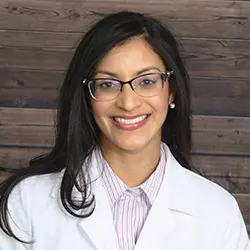





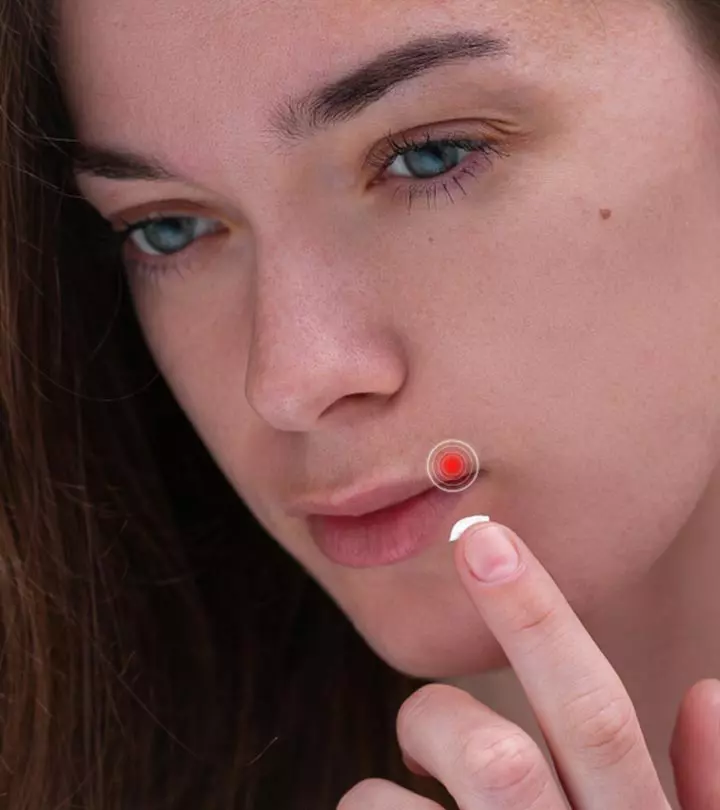
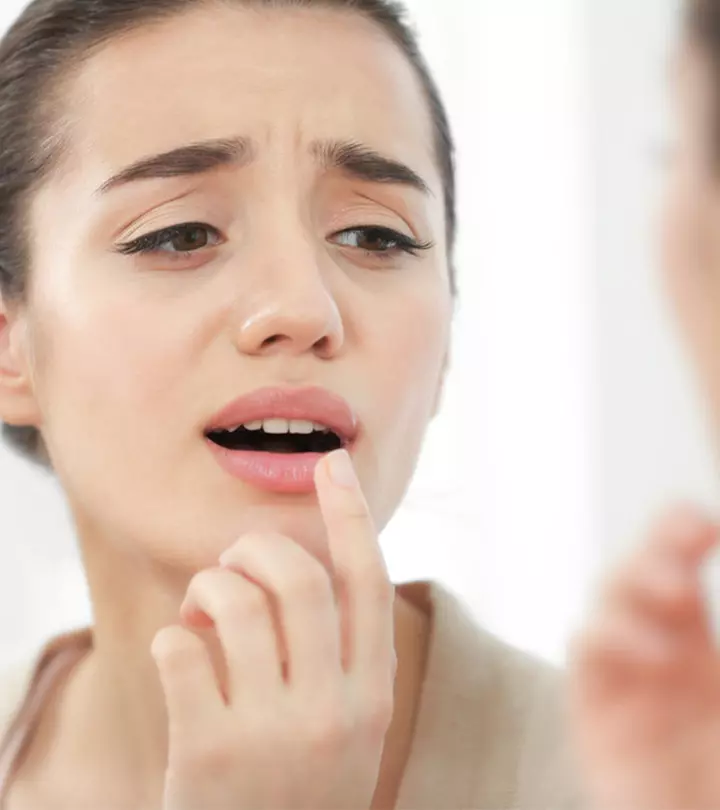
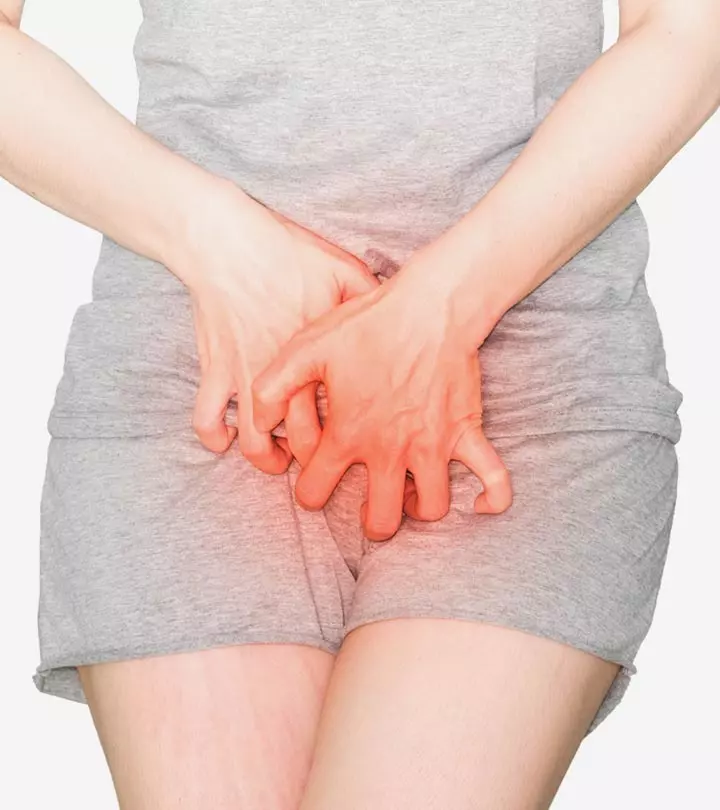
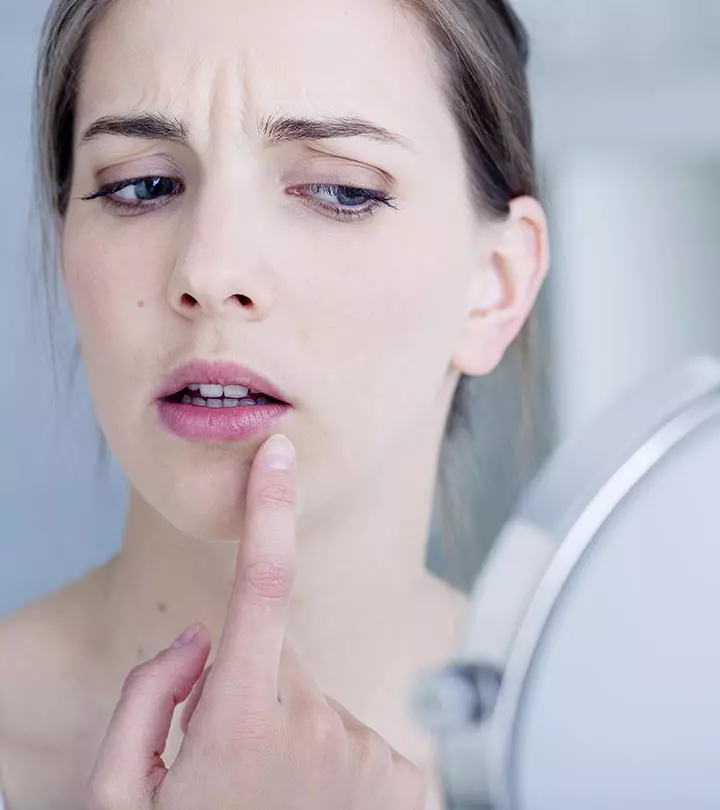
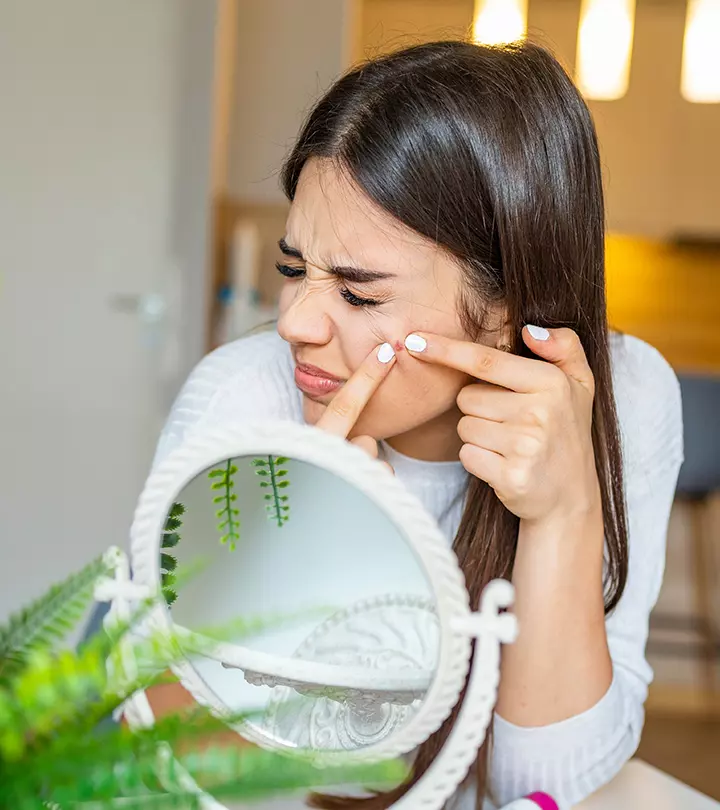
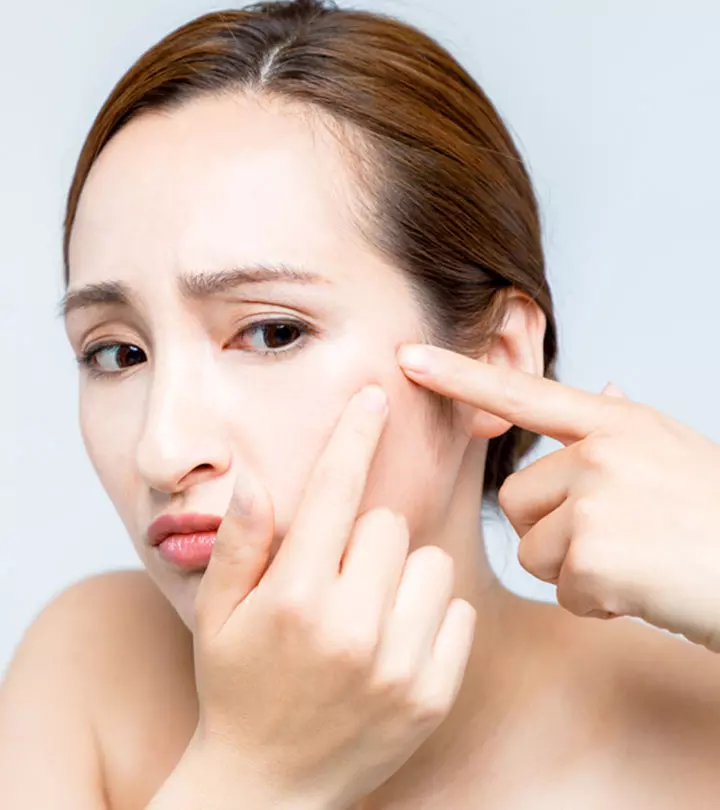
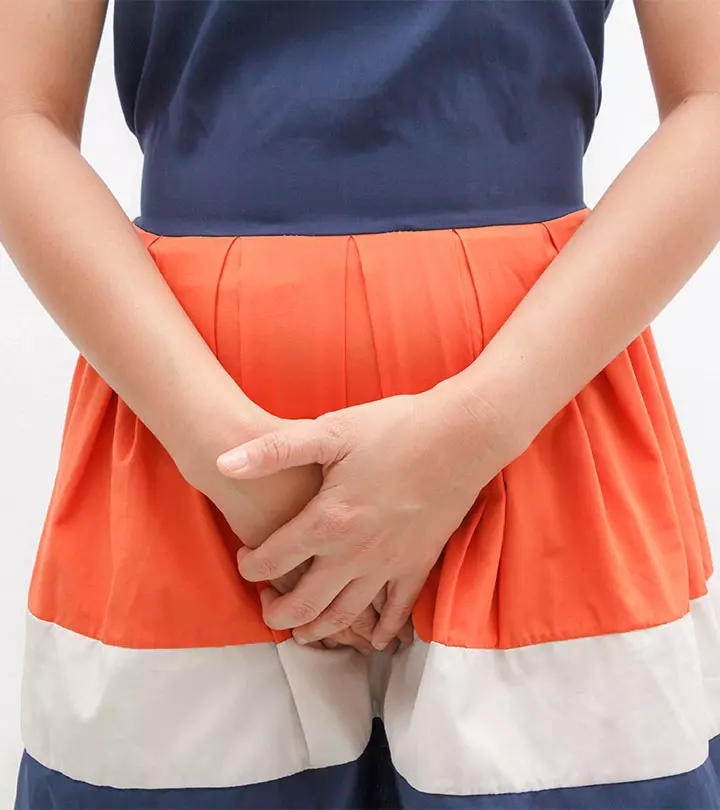
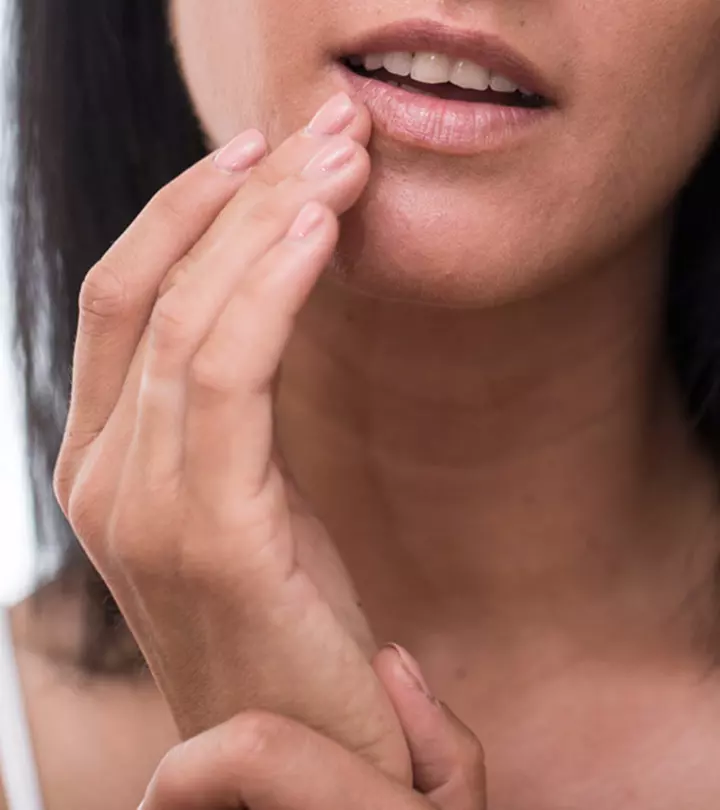
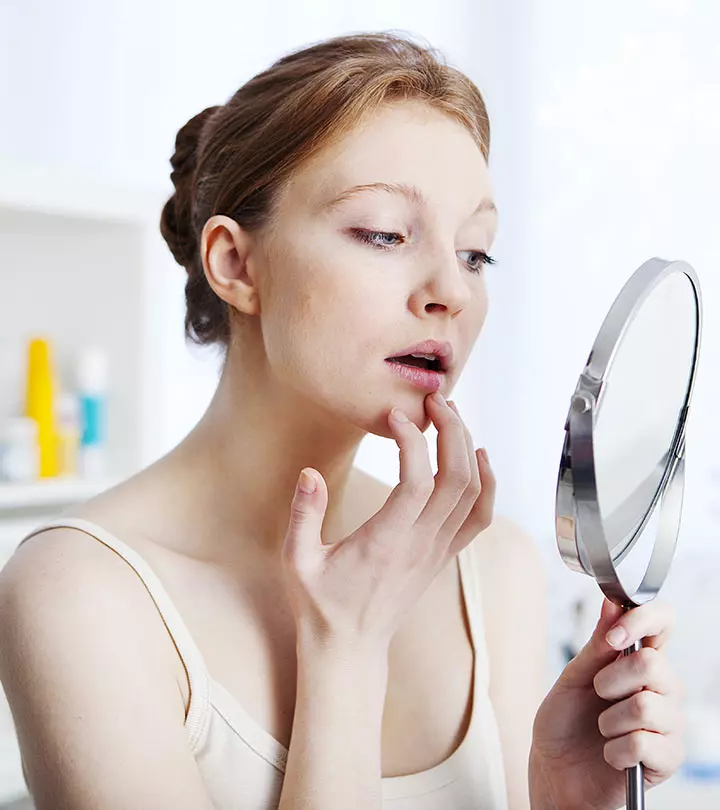
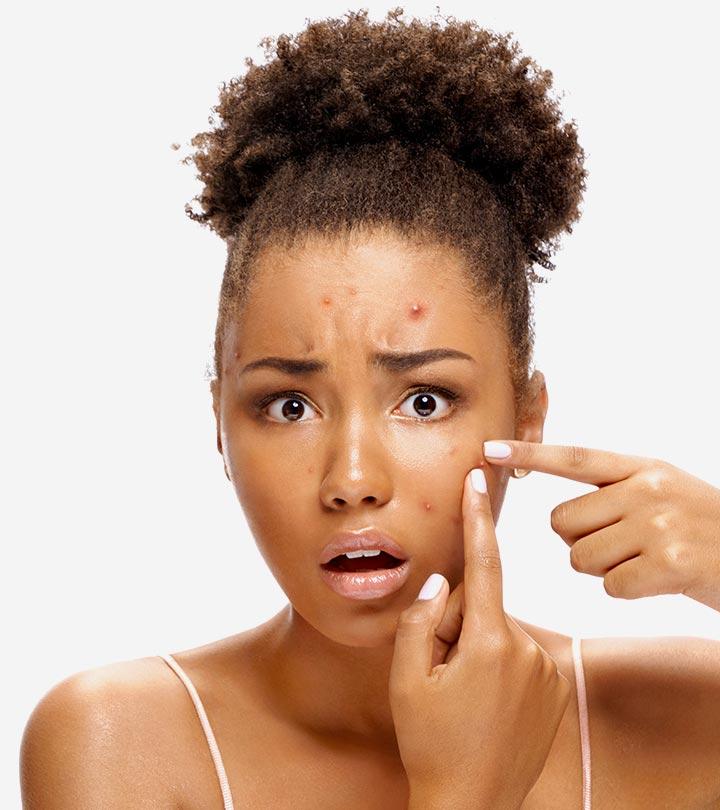
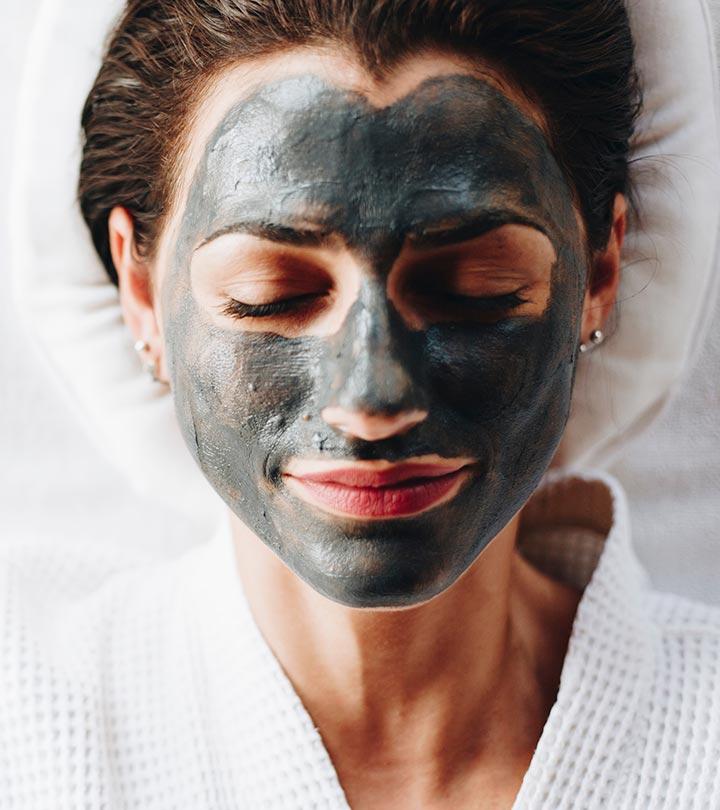
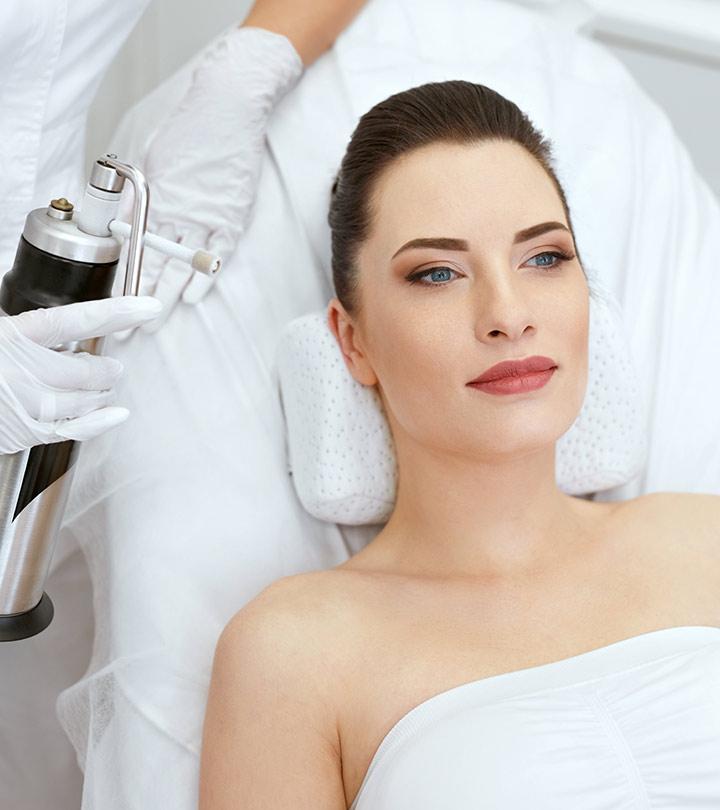
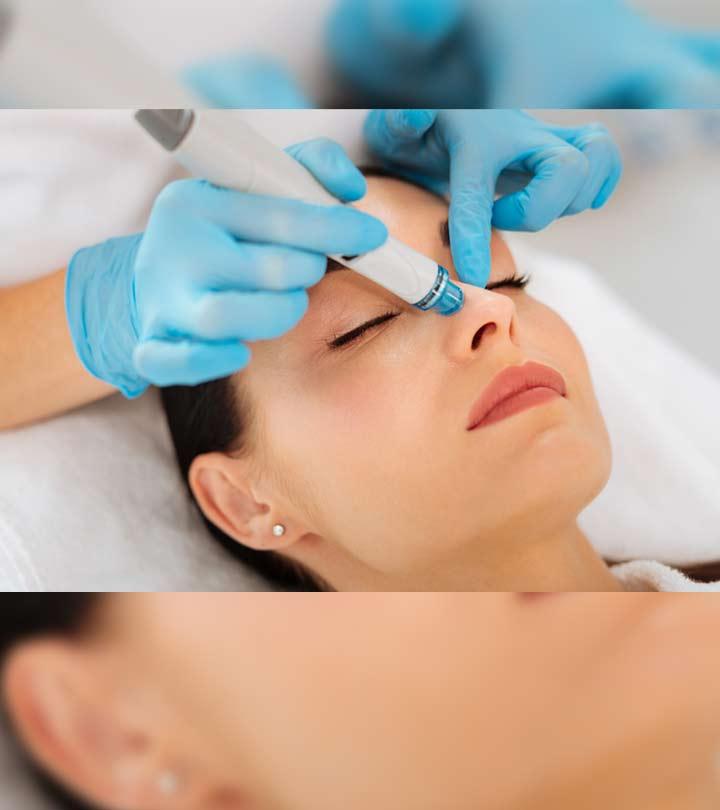
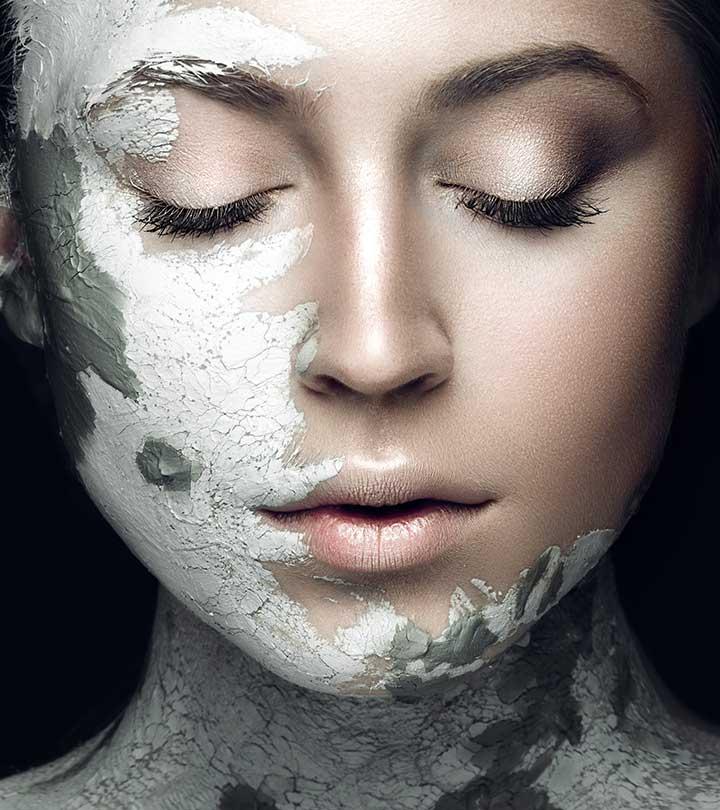

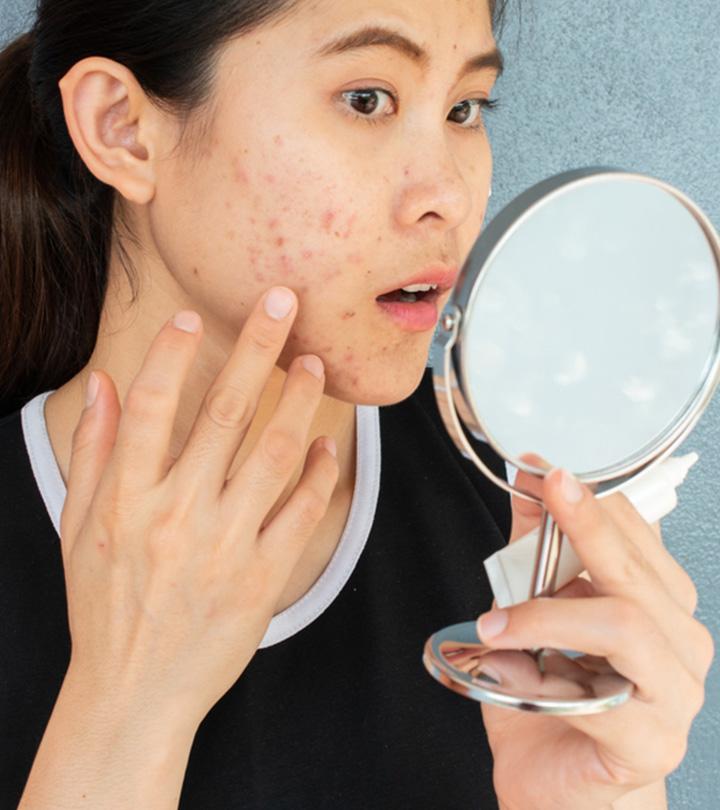
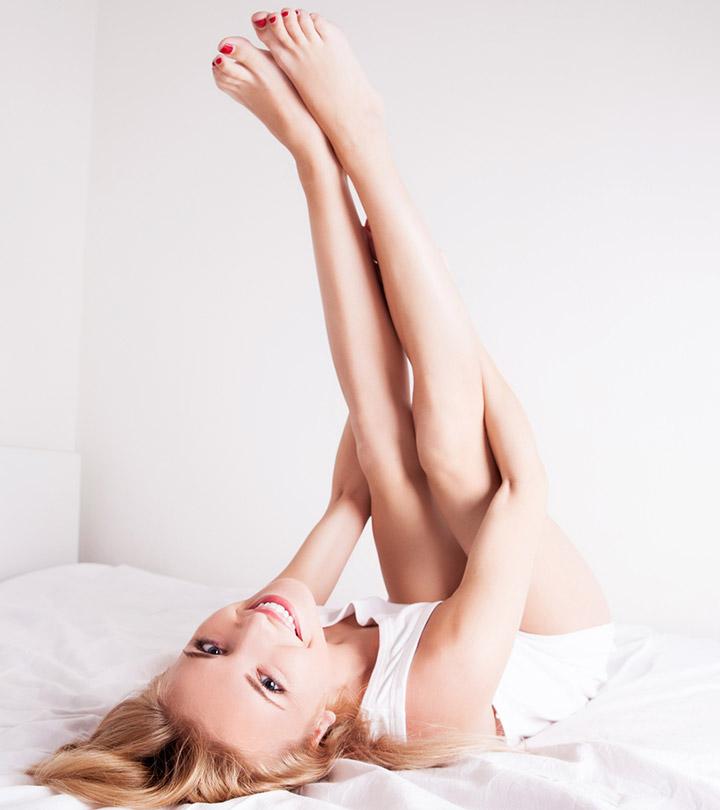
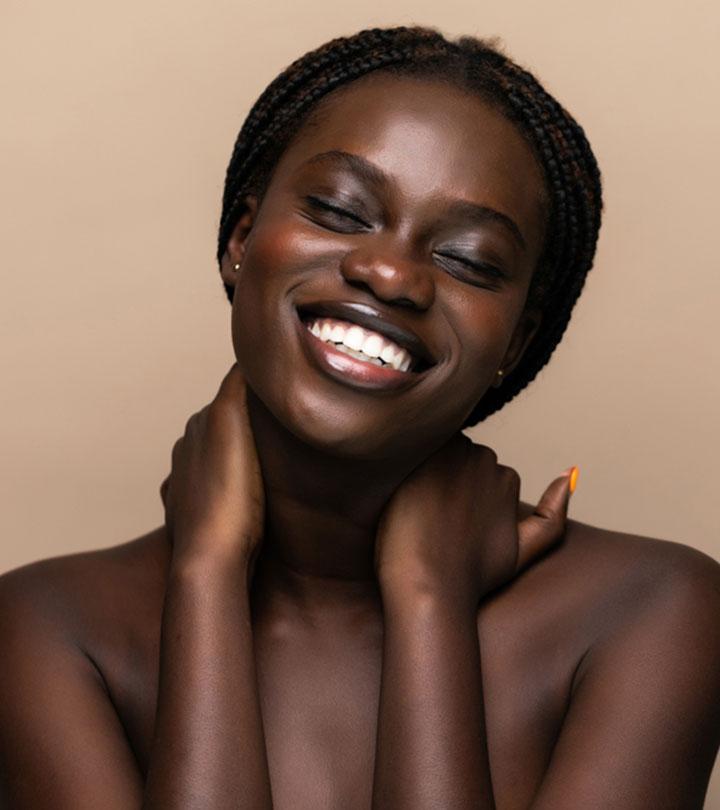
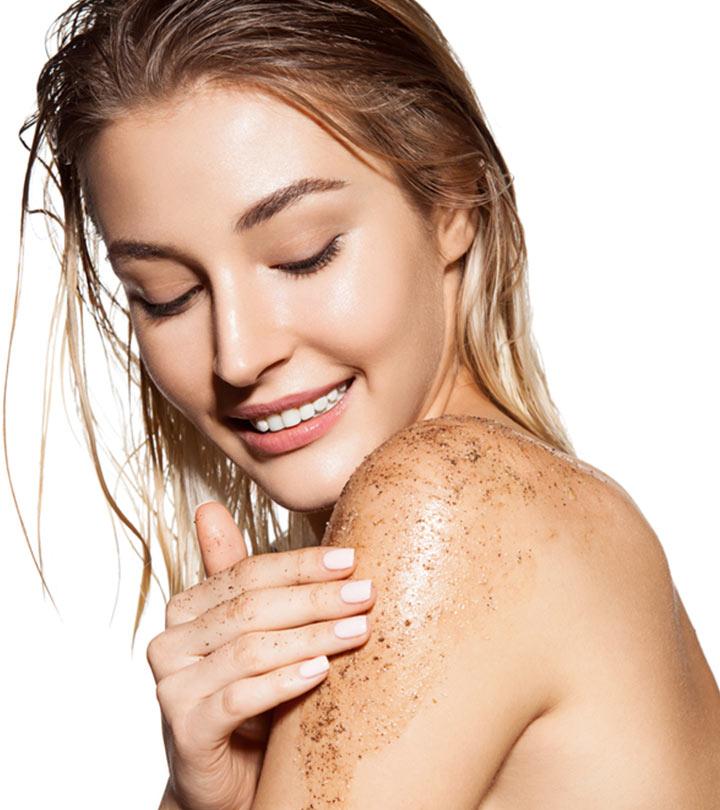
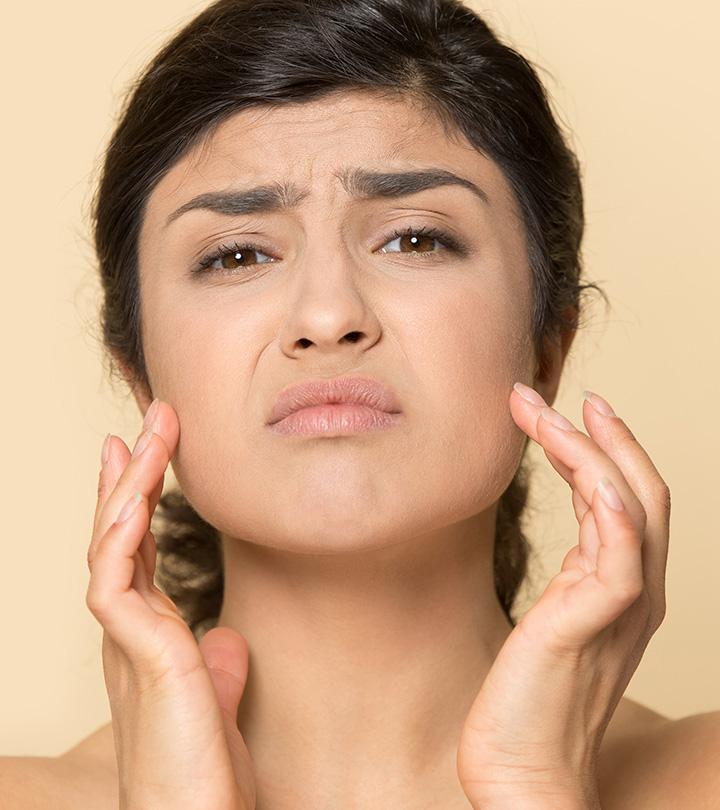
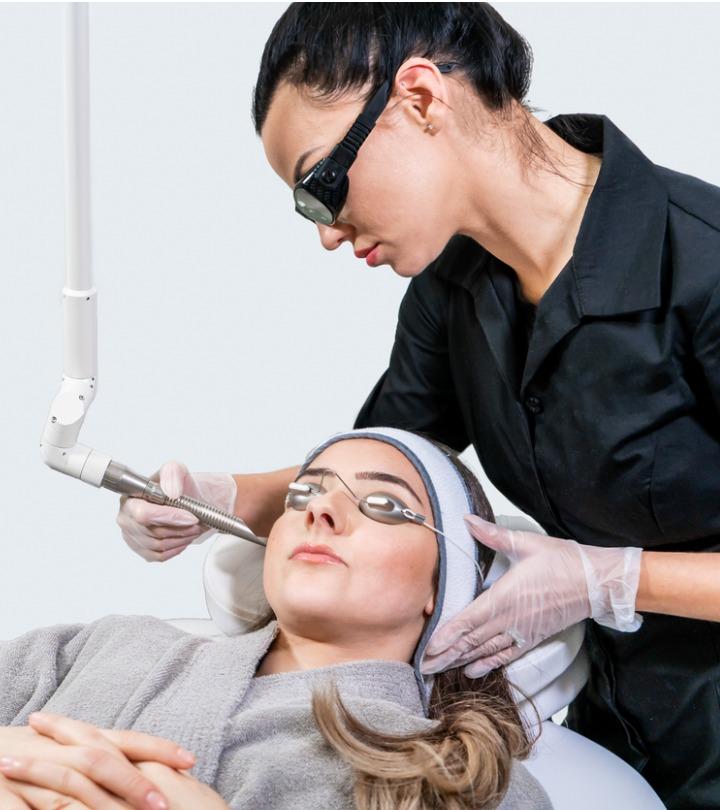
Community Experiences
Join the conversation and become a part of our empowering community! Share your stories, experiences, and insights to connect with other beauty, lifestyle, and health enthusiasts.